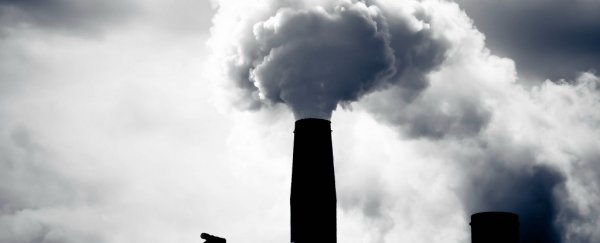As the world's leading superpowers struggle to make the transition from fossil-based energy systems to more sustainable options, 47 of the world's poorest nations have pledged to skip fossil fuels altogether and jump straight to using 100 percent renewable energy instead.
The ambitious goal was laid out by members of the Climate Vulnerable Forum (CVF) during the final day of the UN Climate Change Conference in Morocco last week, which discussed ways for countries to hit the targets set by the Paris Agreement late last year.
The idea, in a nutshell, is to have some of the world's poorest countries skip from pre-industrialisation practices to renewables, allowing them to basically avoid the 'messy part' in the middle where a need for more energy to support economic growth spurs fossil fuel use to dangerously high levels.
In economics, this sort of skipping is known as 'leapfrogging' and it occurs when a society skips a step of development that other countries have taken.
One of the best examples of this process is mobile phones in rural Africa.
In many African nations, people in remote areas ended up skipping the landline step, with only one land line per 33 people, and moved straight to mobile technology. Now one in 10 people have a cell phone - a transition that some have called a revolution.
Members of the CVF hope to perform the same kind of 'leapfrogging' with regards to energy.
The 47 members of the CVF – which includes nations like Bangladesh, Ethiopia, and Haiti – say they'll "strive to meet 100 percent domestic renewable energy production as rapidly as possible, while working to end energy poverty and protect water and food security, taking into consideration national circumstances".
The goal is to have all of these systems in place some time between 2030 and 2050, and the members have committed to presenting a detailed plan to the UN by 2020.
The announcement comes at a time when countries around the world are trying to come up with a way to uphold the Paris Agreement set at the end of last year, which aims to keep global temperature levels from rising 1.5 degrees Celsius above pre-industrial levels.
"The commitments made by the Climate Vulnerable Forum today are both impressive and inspirational," EU climate commissioner Miguel Arias Canete told Matt McGrath from the BBC.
"They have once again shown their moral leadership in this process with real-world commitments to action. These countries are already living the terrifying reality of climate change today and their very existence is on the line. The EU stands with them and their commitment to greater ambition in the years ahead."
While large, more economically powerful countries are applauding the efforts, members of the CVF are questioning why some of the world's super-powers are so reluctant to change course to protect our shared planet.
"We don't know what countries are still waiting for to move towards net carbon neutrality and 100 percent renewable energy," Edgar Gutierrez, Costa Rica's minister for the environment, told the BBC.
"All parties should start the transition, otherwise we will all suffer."
Another worry is that the world's richest countries will stop providing financial support for the Paris Agreement.
The US had pledged to contribute US$3 billion to the US$100 billion pool the agreement hopes to amass by 2020, but so far, it's only pitched in US$500 million.
These funds are supposed to provide developing countries with the capital they need to get started in changing their infrastructure, but if the richest countries refuse to pay - a threat recently made by US President-elect Donald Trump - it could seriously hinder or destroy the goals set in Paris.
Only time will tell how the situation will play out, but it's definitely a step forward for the 47 countries of the CVF, and hopefully it will spur on other countries to take the same action.
